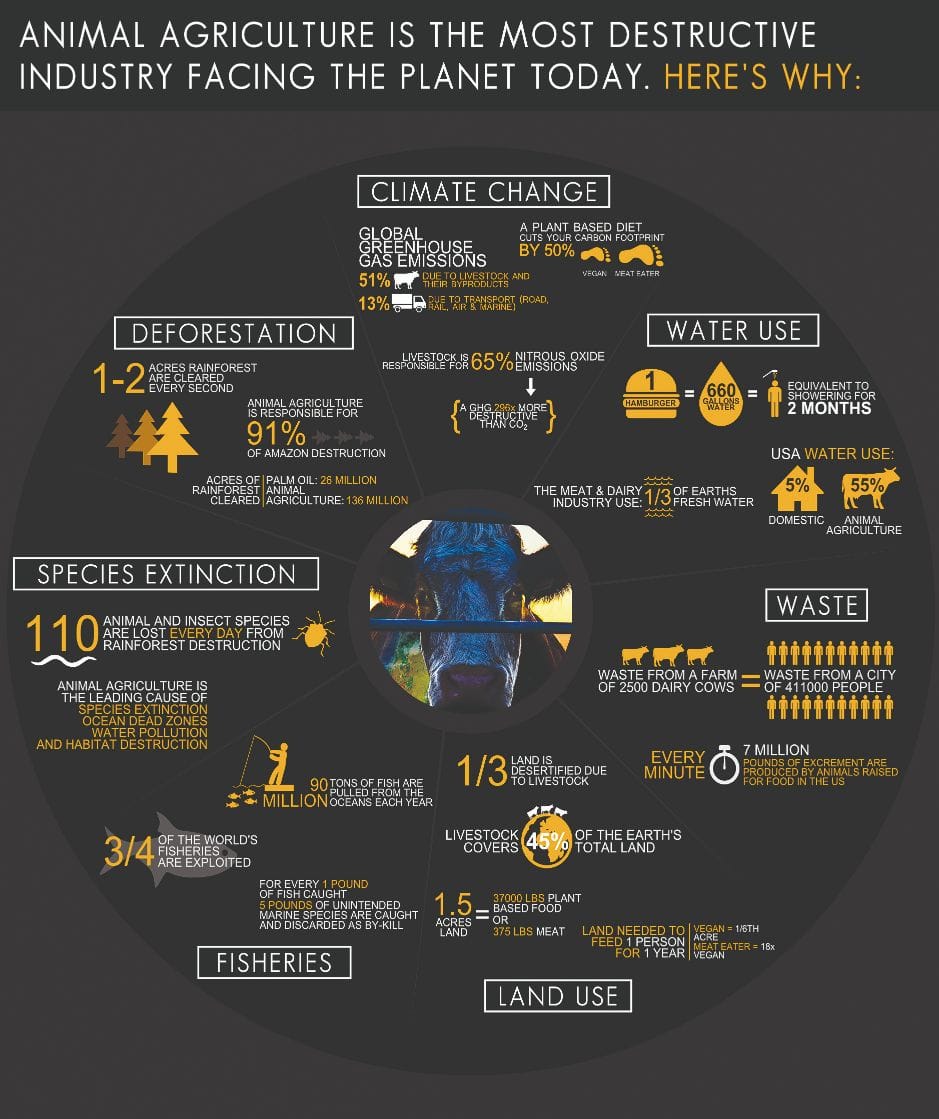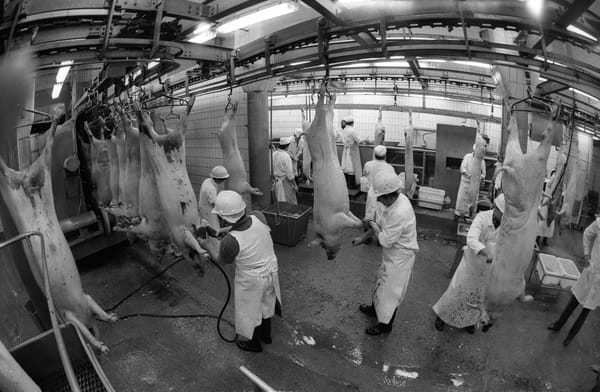The meat of the problem
Veganuary cuts to the heart of the one of the biggest challenges facing the planet.

It’s January 2019. Following another festive holiday, many people may be seeking new year’s resolutions to adhere to, ideally in support of good causes. Going vegan or “zero waste” might be an option worth considering when it comes to environmental sustainability. But will cutting down meat consumption really help with global waste management?
FAO (Food and Agriculture Organization) has predicted that the global meat consumption will double by 2050, as an inevitable result of population growth and increasing demand in developing countries. However, there is also data suggesting the potentially jeopardizing effect of this trend on meat production requirements.
It shouldn’t come as a surprise that to produce meat, the animals need to be fed first. This translates into much higher demand for both land and water usage. Raising livestock for food production uses 83% of the world’s farmland and accounts for 56-58% of agricultural pollutant emissions, but provides only 37% of our protein and 18% of caloric intake, according to an Oxford University study. The study also stated that even the lowest impact meat and dairy products still pose more environmental threat than the least sustainable vegetables and cereals (so, keep dipping your pita in hummus). The land is mostly used for production of animal feed and grazing, which can be detrimental to wildlife through deforestation and alterations to their habitats. Furthermore, ruminant farming is still infamous for its greenhouse gas (GHG) emission; in particular, the potent GHG methane. The arable land also needs to be irrigated for crop production, meaning that animal products require far more water than crops alone, because of the colossal amount of feed that go into their production. The livestock sector is now considered to be the number one water polluter, due to the waste associated with livestock farming. In addition to manure and slurry, veterinary medicines such as antibiotics can enter downstream ecosystems and water sources, endangering the livelihood of aquatic species. Although tthe severity of different farming practices varies across the world, the transition to a diet that excludes animal products can still be hugely beneficial, resulting in a 76% reduction in land usage and 49% drop in GHG emissions, whilst substantially mitigating water contamination.
There is an interactive BBC website worth looking at that provides a simple overview on how dietary choices compare to each other: https://www.bbc.co.uk/news/science-environment-46459714.

Research on EU consumer behavior has also emphasized the relative contributions of different food groups to overall waste production and resource depletion. An average EU consumer wastes around 123kg of food per year, 80% of which is avoidable. This is equivalent to wasting an apple a day at minimum, or a loaf of bread a day at maximum. Despite the fact that meat waste is not the main culprit when it comes to overall waste quantity, it is responsible for most of the wasted water and nitrogen resources because of its resource-intensive nature. Lowering consumer meat intake will therefore still greatly support the initiative to reduce waste footprints.
The figures are indeed quite staggering, and replacing meat with plant-based protein sources can drastically reduce the unnecessary usage of water and land during production.
Veganuary continues to rise for good reason. Making such a commitment does indeed help the planet in the long run!









